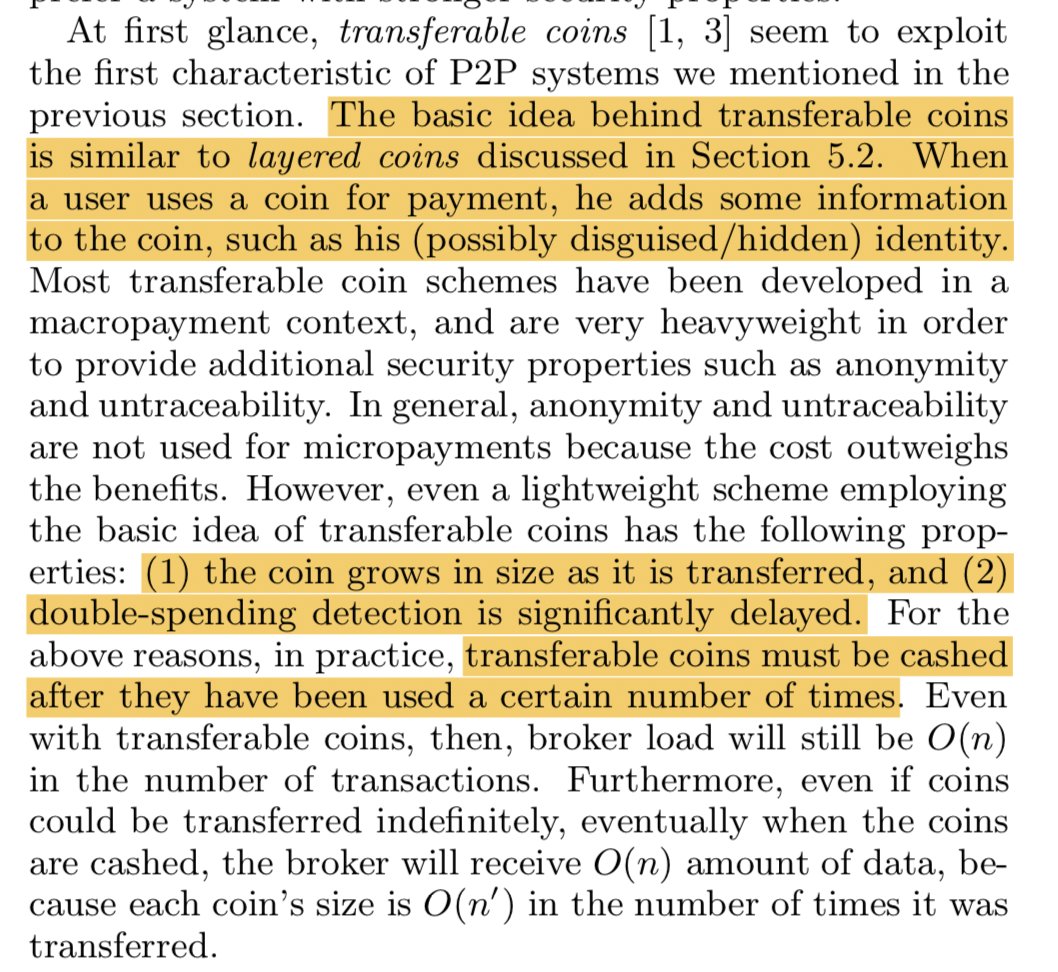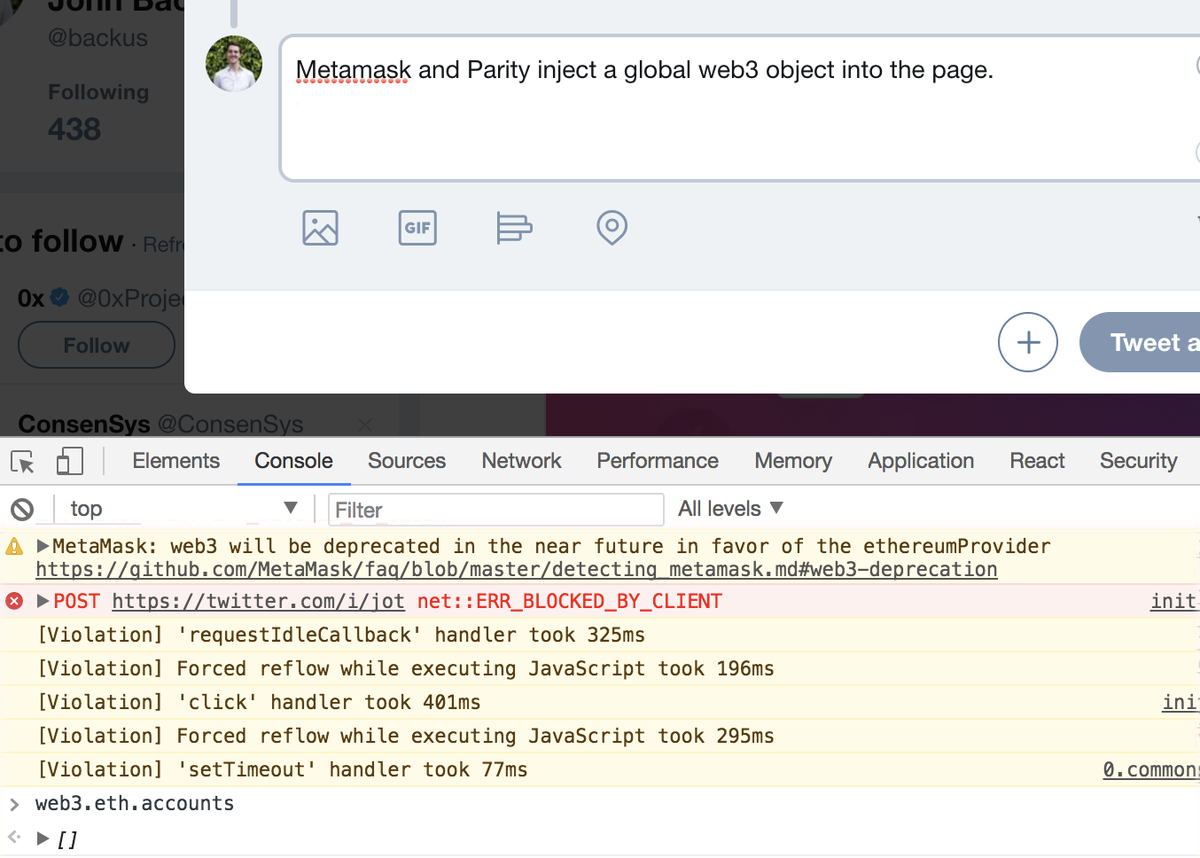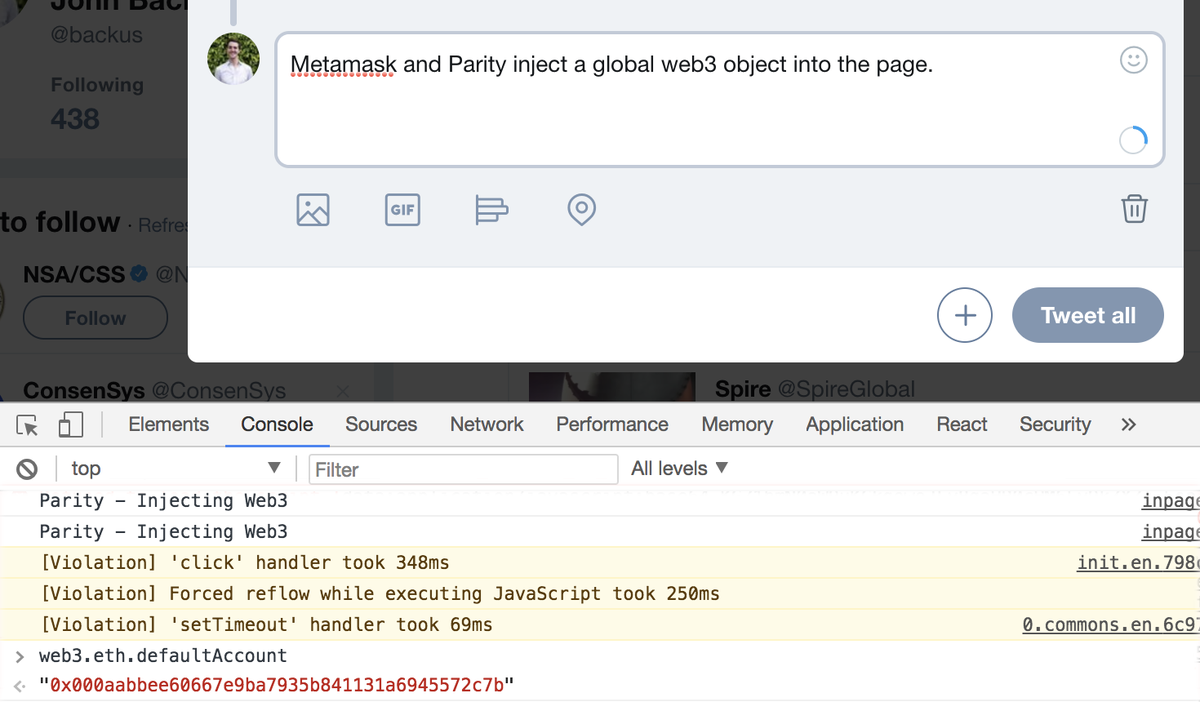
Dissonant and obsessive try-hard. Founder and CTO @getcognito (acquired by @Plaid)
How to get URL link on X (Twitter) App




https://twitter.com/backus/status/1260738251196739584A bunch of people have asked why, so...


https://twitter.com/backus/status/1056685682695884800


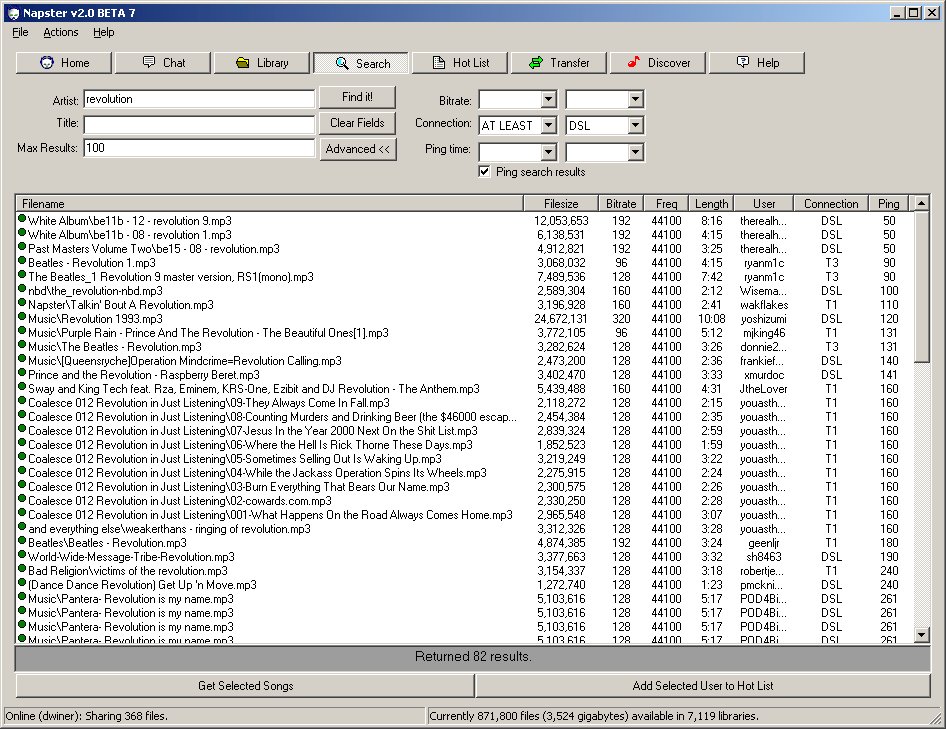

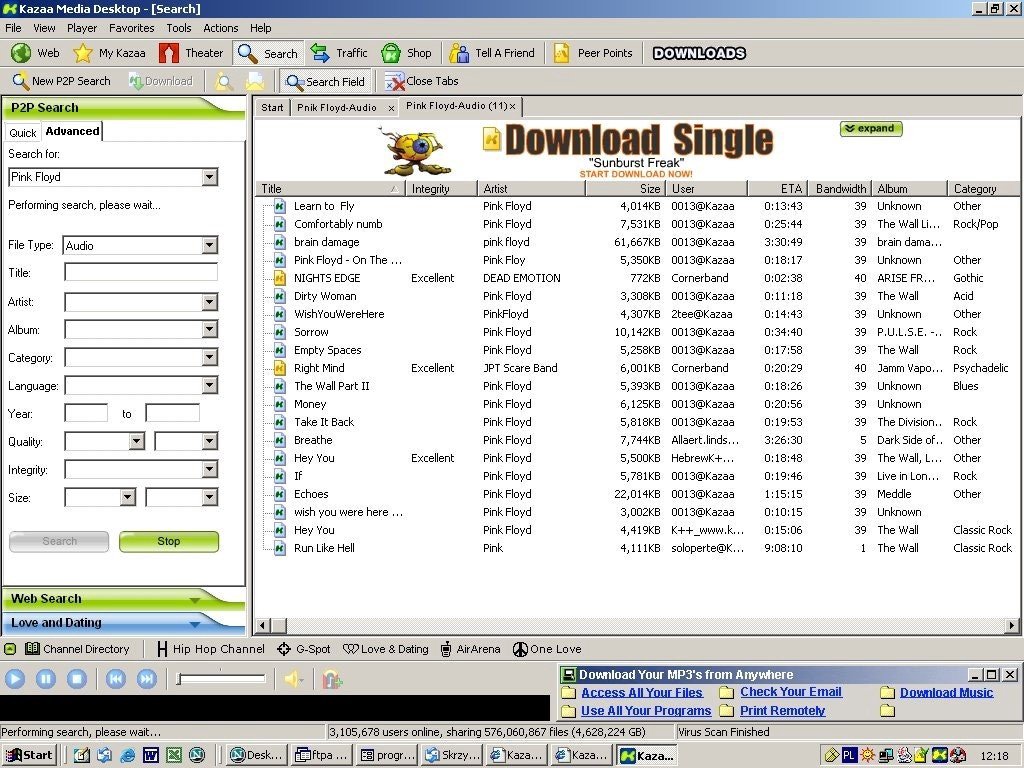
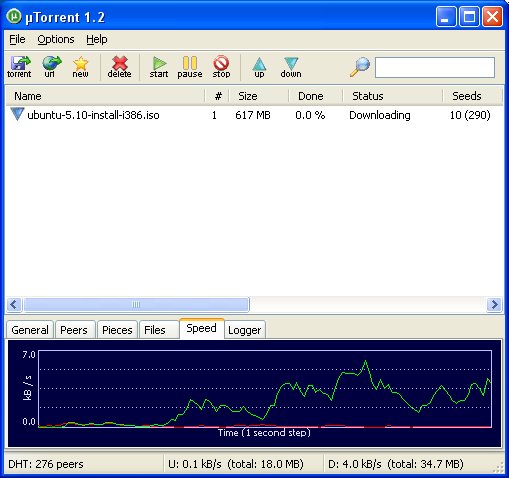

 Compare how each makes you feel now vs. years ago. For me:
Compare how each makes you feel now vs. years ago. For me: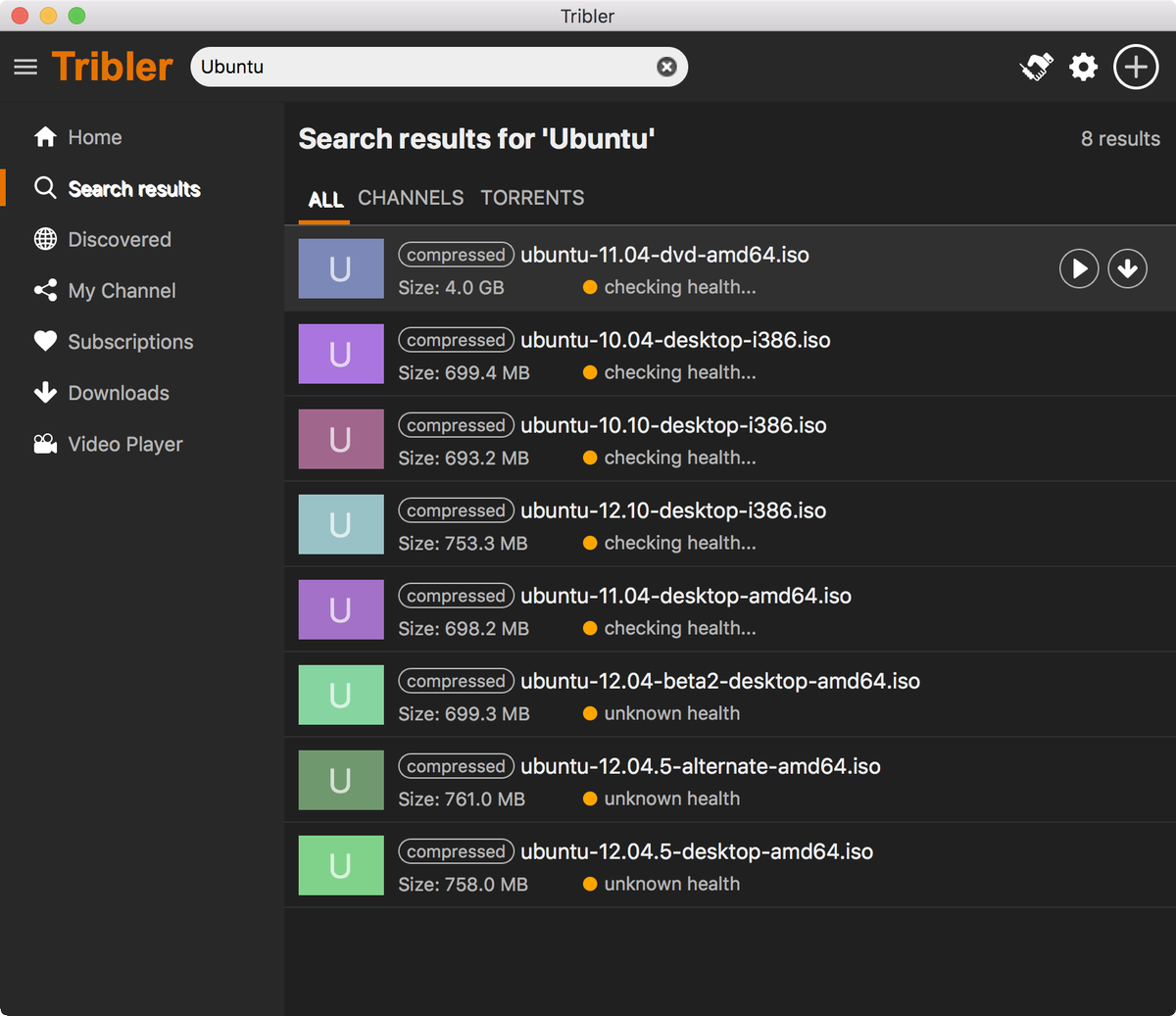
 Theory 1: Decentralized search doesn't help improve user experience. In-app search is a liability since courts eventually ruled that Limewire and Kazaa should have added client-side copyright filters. PopcornTime is a torrent specific example of in-app search attracting lawsuits
Theory 1: Decentralized search doesn't help improve user experience. In-app search is a liability since courts eventually ruled that Limewire and Kazaa should have added client-side copyright filters. PopcornTime is a torrent specific example of in-app search attracting lawsuits
https://twitter.com/backus/status/999519259628732416



